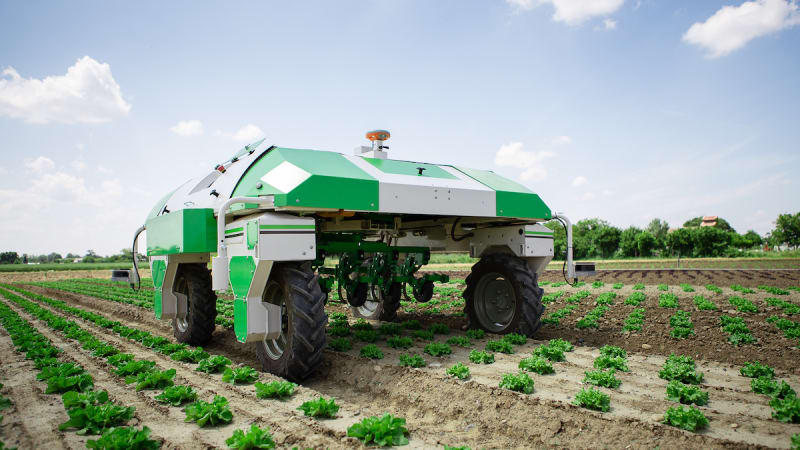Audi Repair Shop Doylestown
Call 267 279 9477 to schedule a appointment

For all the talk about self-driving cars taking over our roads and literally relegating human drivers to the back seat, it’s in the ancient practice of agriculture where autonomous, artificial intelligence vehicles seem destined to go into service first. The latest evidence? Weed-killing robots.
A French company called Naïo Technologies has developed three different robot electric vehicles capable of removing weeds from row crops, tackling the two-headed farming quagmires of high costs for removing weeds and persistent shortages of laborers willing to actually do it. And it’s coming to the U.S. In addition to having around 150 robots in use in Canada, Europe and Japan, Naïo has begun testing its autonomous weeders at 15 different commercial farms in California, Modern Farmer reports. The company last month said it had raised €14 million (about $15.29 million), which it’s using in part to push into the U.S. market.
“Our weeding robots respect both the environment and man,” spokeswoman Anouck Lefebvre tells Modern Farmer. “They provide a solution to tackle farmworker shortages, reduce the strenuous physical workload of hand weeding, and limit the use of chemical weed killers.”
It’s hardly the only company working on autonomous weed-killing technology. Ag giant John Deere in 2017 splashed out $305 million to acquire a Silicon Valley startup that developed a precision herbicide-spraying robot called Lettuce Bot, while a San Francisco company called FarmWise Labs, which has developed an orange robot weed-picker that resembles a tank, told Digital Trends it has raised $14.5 million in venture funding.
The technology bodes well for a less chemical-intensive future of farming, with the prospect of disrupting Big Ag. A study by UC Davis found that hand-weeding costs about $300 per acre, while the pesticide, herbicide and genetically modified seed market that depends on farmers dousing fields indiscriminately with chemicals is estimated to be worth $100 billion.
Naïo has developed three different weed-picking robots: the lightweight Oz, designed for small farms and greenhouses; Ted, a hooped vehicle for vineyards that is already in use in southern France; and Dino, the flagship vehicle designed to tackle weeds on large-scale vegetable farms. All combine precision GPS navigation, mechanical weeding arms that use machine learning to identify weeds, and the ability to map out crops and send data to farmers. They also feature nifty tank-turning capability to make U-turns in tight spaces.
The smallest model, the Oz, relies on four, 110-watt electric motors and either 24-volt lead or higher-range lithium batteries, while Dino relies on lithium batteries and four electric motors, with a top speed of about 2.5 mph, a run time of up to eight hours and the touted ability to cover up to 12 acres per day.
Naïo tells Modern Farmer it plans to open a center in California later this year to store, maintain and market its robots, with a commercial launch expected stateside later this year as well. All this technology predictably isn’t cheap — the Dino runs about $220,000 — but Naïo envisions renting them to farmers or helping them on financing options. Trials in the U.S. have reportedly generated promising results.
It’s difficult to say which company will be first to market with self-driving weed-pickers, but it seems safe to say that their day is coming soon.
Related Video:
from Autoblog https://ift.tt/2UIazM9